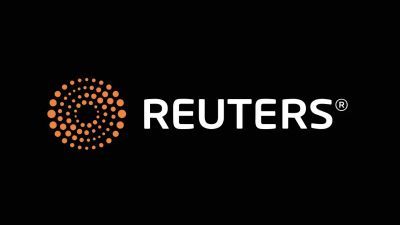LONDON, July 31 (Reuters) - Shares rose on Wednesday after the Bank of Japan raised interest rates in a mostly unexpected hawkish pivot that sparked gains for the Japanese yen, with investors also focused on a U.S. interest-rate decision by the Federal Reserve.
The BOJ also unveiled a detailed plan to slow its massive bond buying, taking another step towards phasing out a decade of huge stimulus. Its decision takes its short-term policy rate to 0.25%, levels unseen since 2008.
The Euro STOXX 600 (.STOXX), gained almost 1%, also helped by a slew of corporate updates. MSCI's broadest index of Asia-Pacific shares outside Japan (.MIAPJ0000PUS), added 1.2%, with Japan's benchmark Nikkei (.N225), closing up 1.5% at its highest for a week.
In the United States, Nasdaq futures jumped over 1.5% after a bullish forecast from Advanced Micro Devices (AMD.O), bolstered struggling chip stocks.
The Fed is seen as leaving rates unchanged, but also indicating that a reduction in borrowing costs could come as soon as September. It has kept its policy rate in the 5.25%-5.50% range for the past year.
Oil prices rose from seven-week lows on escalating tension in the Middle East after Palestinian militant group Hamas said its leader Ismail Haniyeh was killed in the Iranian capital Tehran. The assassination drew threats of revenge on Israel in a region shaken by the war in Gaza and a deepening conflict in Lebanon.
The reaction from markets to the BOJ news was choppy.
The yen recovered slight losses and was last up 1.6% at 150.42 a dollar, reaching its highest since early April and set for its first month of gains this year.
Yields on Japanese government bonds were lower.
"The decision itself was somewhat surprising," said Erik Nelson, macro strategist at Wells Fargo.
"The actual market pricing for further rises is not actually moving all that much… I think the FX reaction is in excess of the rates (bond yields) reaction."
In Europe, bond yields hit multi-month lows on expectations of more global monetary easing this year, even as euro zone inflation unexpectedly rose in July.
Investors - many jittery about the AI frenzy and tech valuations - were also assessing contrasting results from Microsoft and chipmaker
AMD that suggested a divide in the AI landscape.
AMD soared over 9% in premarket trading after it increased its 2024 forecast for artificial-intelligence-chip sales. That in turned boosted chip stocks from Nvidia (NVDA.O), to Intel (INTC.O).
FED AWAITED
Markets are fully pricing in a Fed rate cut of 25 basis points (bps) in September, with roughly 68 bps of easing priced in for the year. Still, some analysts expect the Fed to stay cautious as the labour market is still tight.
The dollar index , which measures the U.S. currency against six rivals, was at 104.39 and is down over 1% in July.
In currencies, the British pound held steady versus the dollar but headed for its biggest one-day drop against the yen in nearly three months after the BOJ rate hike. Sterling was trading at $1.28 and was on course for a 1.5% monthly gain against the dollar.
Investors were focused on the Bank of England's interest rate decision on Thursday, which is surrounded by greater uncertainty than usual as policymakers have not spoken publicly for more than two months due to Britain's election in early July.
In commodities, U.S. crude was 3% higher at $76.94 per barrel and Brent was at $80.60 per barrel, up 2.5% on the day.
Reporting by Tom Wilson in London, additional reporting by Harry Robertson in London and Ankur Banerjee in Singapore; Editing by Clarence Fernandez, Mark Potter and Toby Chopra
